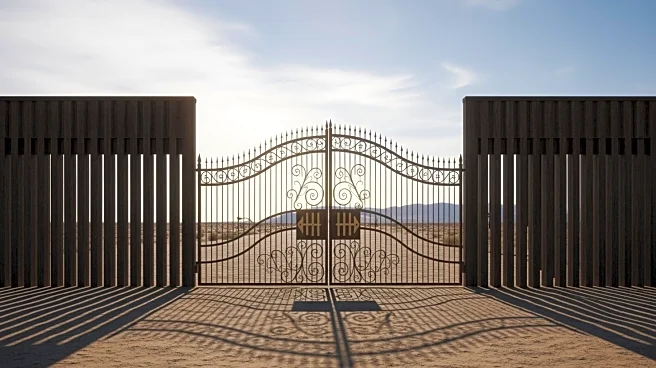What's Happening?
Israel and Egypt are preparing to reopen the Rafah border crossing for the movement of people, according to COGAT, Israel's military aid agency. The reopening is part of a ceasefire agreement, although the date has not been finalized. The crossing will
be under Israeli supervision, but the IDF will not be present at the site. Humanitarian aid will continue to enter Gaza through other crossings, as aid through Rafah was never agreed upon. The reopening comes amid tensions over Hamas's delay in returning hostage remains, which Israel views as a violation of the ceasefire deal.
Why It's Important?
The reopening of the Rafah crossing is significant as it facilitates movement for people in Gaza, potentially easing humanitarian conditions. However, the restriction on aid through Rafah highlights ongoing tensions and mistrust between Israel and Hamas. The situation underscores the fragile nature of the ceasefire and the complexities of managing border crossings in conflict zones. The involvement of international bodies like EUBAM reflects efforts to maintain neutrality and ensure cooperation between parties.
What's Next?
The date for reopening Rafah will be announced once preparations are complete. The World Health Organization is expected to be the first to evacuate sick and wounded individuals through the crossing. The Palestinian Authority will manage the crossing, with support from European forces. The situation remains fluid, with potential for further diplomatic negotiations or adjustments based on compliance with ceasefire terms.
Beyond the Headlines
The reopening of Rafah could have long-term implications for regional stability and humanitarian access. It may influence future negotiations and the role of international organizations in conflict resolution. The situation also highlights the challenges of balancing security concerns with humanitarian needs in volatile regions.















